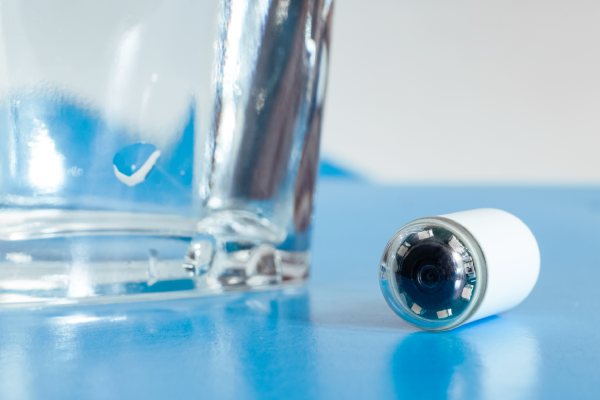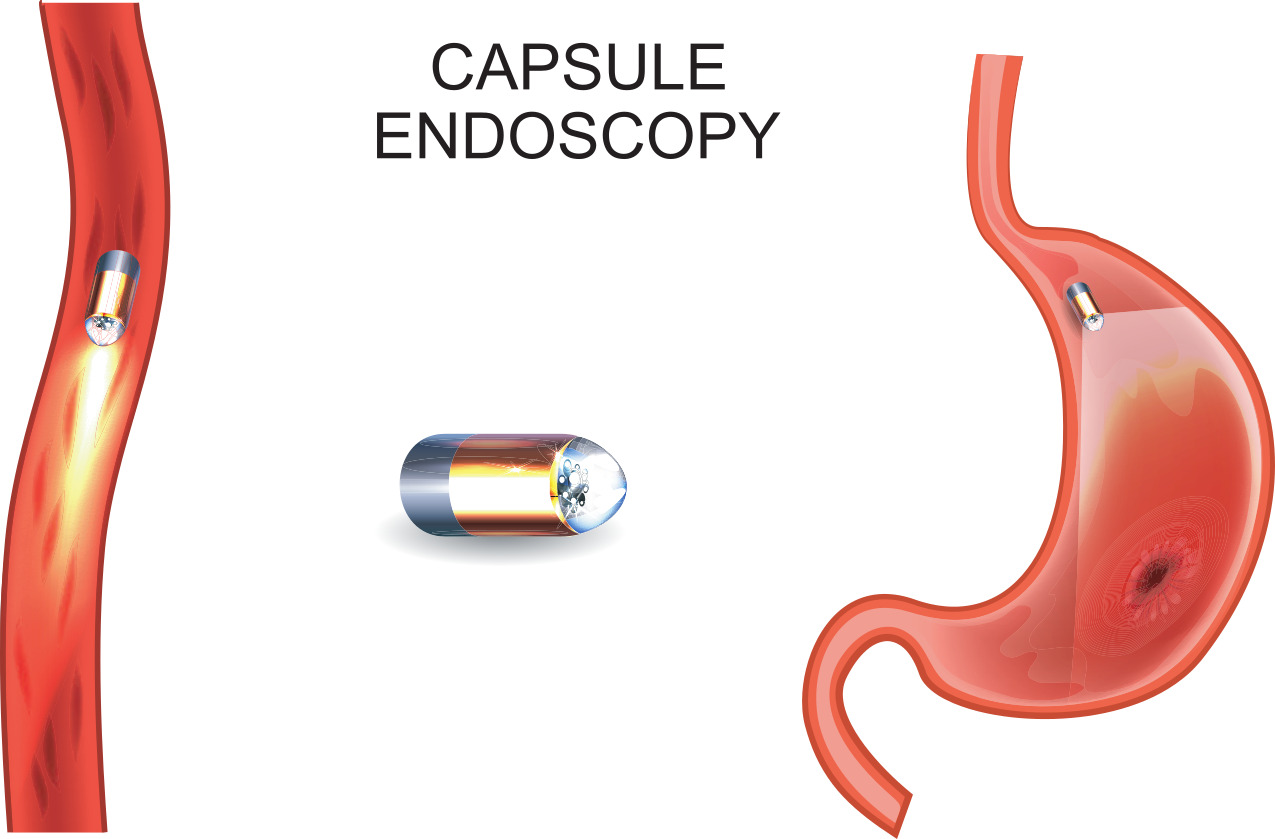
Capsule Endoscopy Pillcam
Inform your specialist prior to the Capsule Endoscopy if you have any of the following:
- Allergy to any medication or anaesthetic
- Diabetes
- Take iron supplements (these need to stop one week before the colonoscopy). Iron can produce black stool which can coat the lining of the bowel, reducing visibility.
- A cardiac pacemaker or implanted electrical device
- Are pregnant or breast-feeding
- Unless otherwise instructed, continue taking any regularly prescribed medication
What happens on the day of your capsule endoscopy?
After your arrival at the Cambridge Specialist Centre, you will have a sensor belt fitted around your waist which will be connected to the data recorder. You will then swallow the capsule. The capsule endoscopy takes around 12 hours and during that time you can leave the centre and resume your normal activities. You must avoid any strenuous activity but you must keep active and avoid lying down. Do not remove the sensor belt at any time during this period. Please handle the data recorder and sensor belt carefully and do not expose them to liquids, shock, vibration or direct sunlight which may cause the loss of information.
You cannot eat or drink anything for two hours after swallowing the capsule. After two hours you can drink clear fluids and after four hours you can have a light lunch.
After swallowing the capsule and until it is excreted, do not go near a powerful electromagnetic field such as an MRI scanner.
What happens after a capsule endoscopy?
After 12 hours you can remove the sensor belt and data recorder and return these to the Cambridge Specialist Centre. The capsule will be passed naturally in your bowel motion and it is disposable. You may not notice the capsule passing.
The recording will be analysed by Dr Alasdair Patrick, who are gastroenterologists with training in the interpretation of these images. The results of the procedure may take up to one week to review carefully. The results will be sent to your doctor who referred you for this test which will inform you of the findings.


Safety and Risks
A capsule endoscopy is generally a very safe test.
There is a very small risk that the capsule could get stuck in a previously unsuspected stricture or narrowing which would result in an obstruction of the bowel. Usually people who are referred for capsule endoscopy have had numerous standard bowel investigations which would make obstruction due to an unidentified stricture extremely unlikely.
You should not have a capsule endoscopy if you have any of the following:
- A known stricture of the bowel
- Large diverticula
- Gastrointestinal fistulae
- Pregnancy
Care needs to be taken if you have a pacemaker or implanted electrical device.
Contact Us
Booking a consultation
Get in touch today with one of our team and we’ll arrange a time that suits you to see one of our specialists.

 07 444 4600
07 444 4600 email us
email us